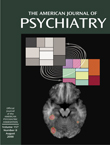More Questions About Recovered Memories
The article by Dr. Chu et al. suffers from several methodological deficiencies. Several assertions merit responses.
1. The authors asserted, “Clinical research generally has supported the concepts of dissociative amnesia…in relation to traumatic events” (p. 750). This statement is simply untrue. Pope and colleagues (1) have demonstrated that not a single study in the literature provides methodologically sound evidence for this phenomenon.
2. Terr’s investigations of traumatized children demonstrate the differential effects on memory, depending on the chronicity of abuse. The authors failed to note, however, that Terr’s chronically abused group was significantly younger than her group with a single episode of abuse (2). Her results may have thus merely reflected normal childhood amnesia.
3. The authors said that they independently confirmed the participants’ abuse. This is inaccurate.
First, answers to the question “Have you had anyone confirm these events?” (p. 751) are meaningless unless respondents know exactly what kind of information from others would—and would not—serve as confirmation. The authors failed to indicate what they told their participants about this critical point. Second, the authors believe that bodily scars could confirm a history of suspected abuse. This argument is illogical; a scar can result from a wide variety of injuries. Third, because Dr. Chu and colleagues mentioned nothing about personally examining the participants’ physical evidence, the reader can only wonder whether the authors simply accepted the participants’ word for the existence and content of these records. (Kluft [3], who is cited in the present study, “confirmed” patients’ allegations by accepting the patients’ own accounts of their confirmations and of the confessions abusers had allegedly made.)
These deficiencies severely undermine the authors’ contention that their “criteria for confirmation were relatively stringent” (p. 753). Rather, the authors provided no specific, operationally defined criteria for confirmation at all.
4. The authors state that losing memory for whole periods of the respondents’ lives indicated a “massive failure to integrate entire periods of childhood” (p. 753). This assertion violates the time-honored maxim that novel explanations for a phenomenon must not be advanced unless well-established, simpler explanations have been excluded. Here, there is a simple and entirely reasonable explanation for the participants’ lack of recall: namely, that nothing particularly memorable occurred during their childhoods. In other words, demonstrating traumatic amnesia requires excluding the possibility that the participants merely forgot unremarkable events. Dr. Chu and colleagues failed this requirement.
Finally, the authors implied that self-reported amnesia is synonymous with dissociative amnesia. But as numerous writers have noted, nonreporting of an event does not necessarily mean it was forgotten. Dr. Chu and colleagues have therefore failed to prove their participants were amnestic.
1. Pope HG Jr, Hudson JI, Bodkin JA, Oliva P: Questionable validity of “dissociative amnesia” in trauma victims: evidence from prospective studies. Br J Psychiatry 1998; 172:210–215, 216–217Crossref, Medline, Google Scholar
2. Piper A: Repressed memories from WWII: nothing to forget: examining Karon and Widener’s (1997) claim to have discovered evidence for repression. Professional Psychol: Res and Practice 1998; 29:476–478Crossref, Google Scholar
3. Kluft RP: The confirmation and disconfirmation of memories of abuse in DID patients: a naturalistic clinical study. Dissociation 1995; 8:253–258Google Scholar



